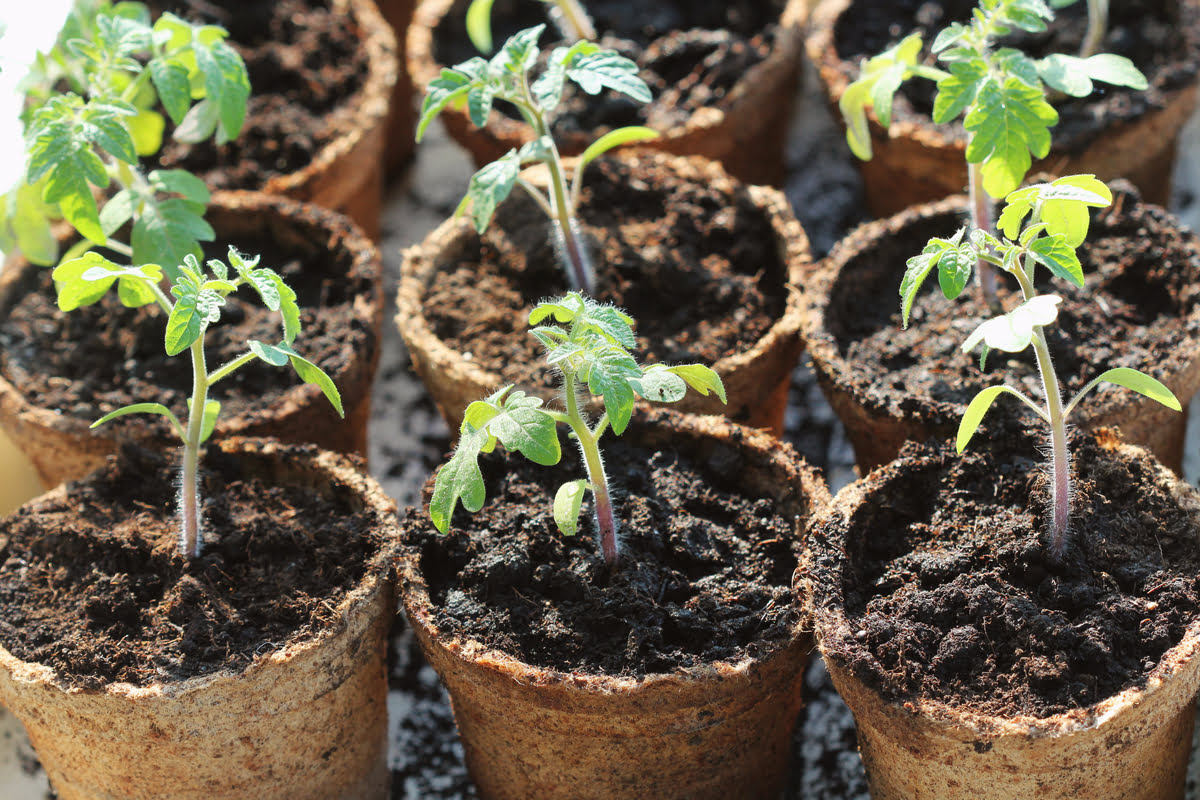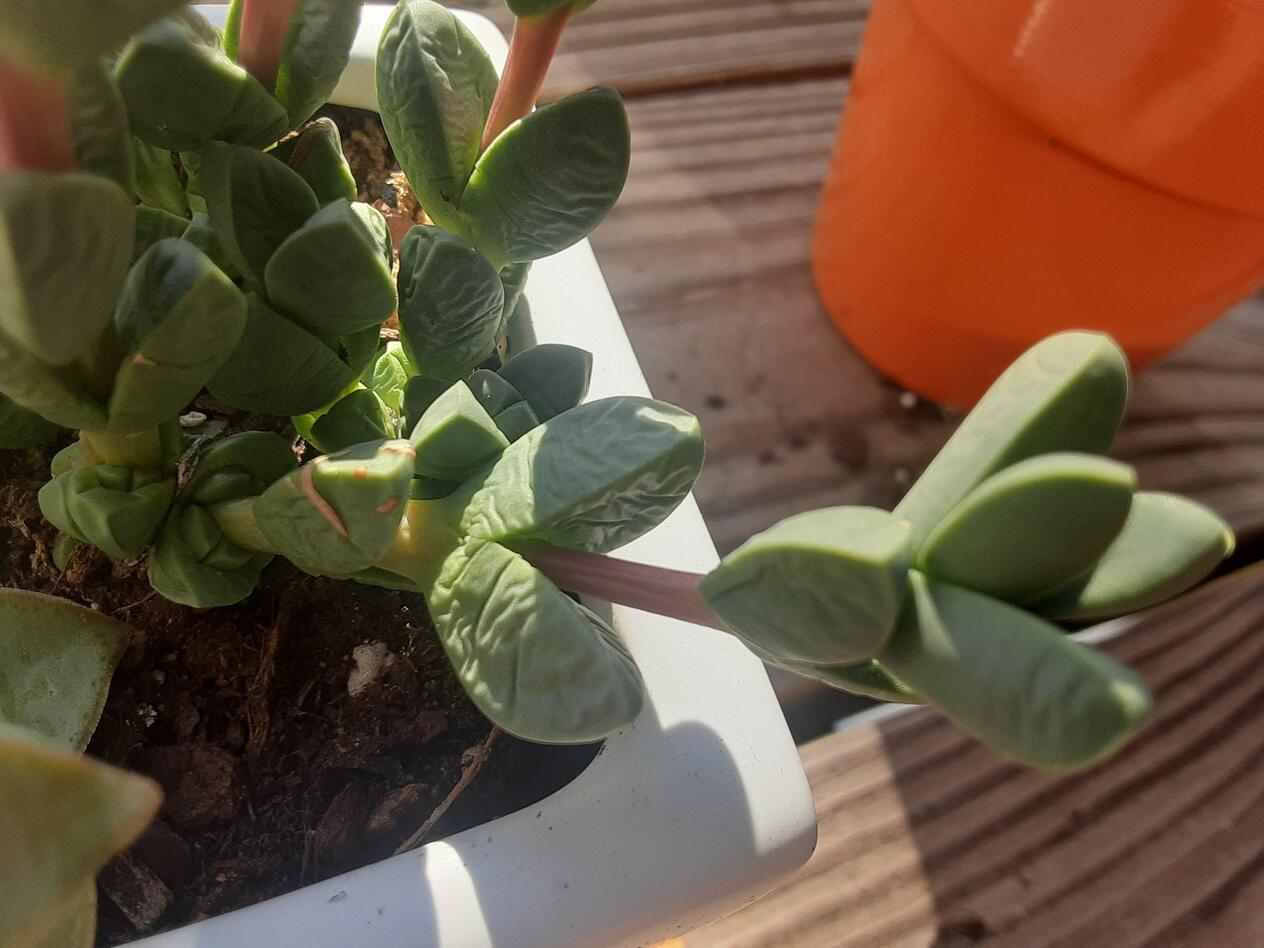Home>Types of Gardening>Ornamental Gardening>Why Aren’t My Sunflowers Growing


Ornamental Gardening
Why Aren’t My Sunflowers Growing
Modified: February 7, 2024
Discover the reasons behind stunted sunflower growth in your ornamental garden. Learn how to troubleshoot and foster healthy sunflower growth.
(Many of the links in this article redirect to a specific reviewed product. Your purchase of these products through affiliate links helps to generate commission for Chicagolandgardening.com, at no extra cost. Learn more)
Table of Contents
**
Introduction
**
Welcome to the wonderful world of ornamental gardening, where the vibrant hues and towering presence of sunflowers can bring joy and warmth to any garden. Sunflowers are not only a sight to behold but also a symbol of positivity and vitality, making them a popular choice for gardeners seeking to add a touch of radiance to their outdoor spaces. However, despite their reputation for being resilient and low-maintenance, many gardeners encounter challenges when attempting to cultivate these iconic blooms. If you've found yourself pondering, "Why aren't my sunflowers growing?" you're not alone.
In this comprehensive guide, we'll delve into the intricacies of sunflower cultivation, exploring the factors that can influence their growth and the common mistakes that may hinder their development. By understanding the unique characteristics of sunflowers and the specific care they require, you'll be better equipped to nurture these majestic flowers and witness their full splendor in your garden. So, let's embark on this enlightening journey to uncover the secrets of successful sunflower cultivation and ensure that your gardening endeavors yield a bountiful harvest of radiant blooms.
**
Understanding Sunflowers
**
Before delving into the intricacies of nurturing sunflowers, it’s essential to grasp the fundamental characteristics of these iconic blooms. Sunflowers, scientifically known as Helianthus annuus, are renowned for their vibrant yellow petals and strikingly large, circular flower heads. These cheerful blooms have a remarkable ability to track the sun’s movement throughout the day, a phenomenon known as heliotropism, which contributes to their iconic status in the gardening world.
One of the most captivating features of sunflowers is their impressive height, with some varieties reaching towering heights of 10 feet or more. This vertical prowess not only makes them a visually stunning addition to any garden but also adds a sense of grandeur and drama to the outdoor landscape. Furthermore, sunflowers are not only ornamental but also serve a practical purpose, as their seeds are a valuable source of nutrition for birds and humans alike.
When it comes to cultivation, sunflowers are known for their adaptability and resilience, thriving in various soil types and climates. However, despite their hardy nature, they do have specific requirements for optimal growth, including ample sunlight, well-drained soil, and adequate spacing to accommodate their expansive root systems. By gaining a deeper understanding of these fundamental traits, you’ll be better equipped to address the unique needs of sunflowers and foster an environment conducive to their flourishing.
**
Factors Affecting Sunflower Growth
**
Several key factors play a pivotal role in influencing the growth and development of sunflowers. Understanding these variables is crucial for creating an environment that fosters optimal growth and ensures the flourishing of these radiant blooms.
- Sunlight: Sunflowers are aptly named, as they have an insatiable appetite for sunlight. Adequate exposure to sunlight is essential for the photosynthetic process, which fuels their growth and enables the production of vibrant blooms. Insufficient sunlight can lead to stunted growth and smaller flower heads, so it’s imperative to plant sunflowers in a location that receives full sun for the majority of the day.
- Soil Quality: The quality of the soil directly impacts the health and vigor of sunflowers. Well-drained, loamy soil with a slightly acidic to neutral pH is ideal for sunflower cultivation. Additionally, incorporating organic matter into the soil can enhance its fertility and provide essential nutrients for robust growth.
- Watering: Proper watering is critical for supporting healthy sunflower growth. While sunflowers are relatively drought-tolerant once established, consistent moisture is crucial during their initial growth stages. Overwatering can lead to root rot, so it’s important to strike a balance and allow the soil to dry out slightly between watering sessions.
- Spacing: Adequate spacing between sunflower plants is essential for ensuring optimal growth. Crowded conditions can lead to competition for resources and hinder the development of individual plants. Be sure to adhere to the recommended spacing guidelines for the specific sunflower variety you are cultivating.
- Fertilization: Providing the appropriate nutrients through fertilization can significantly impact sunflower growth. A balanced fertilizer with a slightly higher phosphorus content can promote strong root development and robust flowering. However, it’s important not to over-fertilize, as excessive nitrogen can lead to lush foliage at the expense of flower production.
By attentively addressing these factors and tailoring your gardening practices to meet the specific needs of sunflowers, you can create an environment that nurtures their growth and encourages the manifestation of their resplendent blooms.
**
Common Mistakes in Sunflower Care
**
While cultivating sunflowers can be a rewarding endeavor, it’s not uncommon for gardeners to encounter challenges stemming from common mistakes in sunflower care. By familiarizing yourself with these pitfalls, you can proactively avoid them and set the stage for successful sunflower cultivation.
- Improper Sunlight: One of the most prevalent mistakes is inadequate sunlight exposure. Planting sunflowers in shaded areas or failing to provide sufficient sunlight can impede their growth and diminish the size and vibrancy of their blooms. It’s essential to select a planting location that receives ample sunlight throughout the day.
- Overwatering or Underwatering: Erratic watering practices, such as overwatering or underwatering, can detrimentally impact sunflower growth. Overly saturated soil can lead to root rot, while prolonged drought conditions can stunt their development. Striking a balance and providing consistent, moderate moisture is crucial for their well-being.
- Poor Soil Quality: Neglecting the quality of the soil can hinder sunflower growth. Compacted or nutrient-deficient soil can impede root development and limit the plant’s access to essential resources. Conducting a soil test and amending the soil as needed can create a more hospitable environment for sunflowers to thrive.
- Inadequate Spacing: Failing to adhere to proper spacing guidelines can lead to overcrowding and stunted growth. Each sunflower plant requires ample space to spread its roots and access nutrients and sunlight. Be mindful of the recommended spacing for the specific variety you are cultivating.
- Ignoring Pests and Diseases: Neglecting to monitor for pests and diseases can leave sunflowers vulnerable to infestations and infections. Common pests that affect sunflowers include aphids, caterpillars, and birds that may feed on the seeds. Additionally, fungal diseases can impact their overall health. Vigilance and prompt intervention are crucial for mitigating these risks.
By steering clear of these common pitfalls and implementing proactive care practices, you can bolster the health and vitality of your sunflowers, paving the way for a flourishing display of radiant blooms.
**
Tips for Successful Sunflower Growth
**
Embarking on a journey to cultivate thriving sunflowers entails incorporating a strategic approach and implementing proven tips for their successful growth. By integrating these expert recommendations into your gardening routine, you can optimize the conditions for your sunflowers to flourish and showcase their resplendent beauty.
- Strategic Planting: Select a planting location that receives abundant sunlight, ideally facing south to maximize sun exposure throughout the day. Adequate spacing between plants is essential, allowing ample room for their expansive growth and development.
- Optimal Soil Preparation: Prior to planting, ensure that the soil is well-drained and rich in organic matter. Amending the soil with compost or well-rotted manure can enhance its fertility and provide a favorable environment for robust root establishment.
- Mindful Watering: Establish a consistent watering schedule, particularly during the germination and early growth stages. While it’s important to provide adequate moisture, avoid overwatering, as excessively wet soil can compromise root health.
- Supportive Maintenance: As sunflowers grow, provide gentle support for their tall stems to prevent them from bending or breaking in strong winds. Additionally, removing competing weeds and regularly inspecting for pests and diseases can safeguard their well-being.
- Feasible Fertilization: Prior to planting, incorporate a balanced fertilizer into the soil to provide essential nutrients for initial growth. Once the plants have established, a light application of fertilizer can bolster their vitality without promoting excessive foliage growth at the expense of blooms.
- Harvesting Sunflower Seeds: If you’re cultivating sunflowers for their seeds, allow the flower heads to mature and the seeds to fully develop before harvesting. Once the seeds have ripened, carefully remove them for culinary use or as a nutritious treat for local wildlife.
By integrating these expert tips into your sunflower care regimen, you can cultivate a thriving and vibrant display of sunflowers, enriching your garden with their striking beauty and uplifting presence.
**
Conclusion
**
As you navigate the enchanting realm of ornamental gardening, the allure of sunflowers beckons with the promise of radiant blooms and vibrant splendor. By gaining a deeper understanding of the unique characteristics and specific care requirements of sunflowers, you can embark on a journey to nurture these iconic blooms with confidence and expertise.
From the towering stature of their stems to the captivating heliotropic dance of their flower heads, sunflowers embody a spirit of resilience and vitality, infusing any garden with a sense of exuberance and warmth. However, their journey from seed to striking bloom is not without its challenges, as evidenced by the common pitfalls and mistakes that can hinder their growth.
Armed with the insights gleaned from this comprehensive guide, you are poised to overcome these obstacles and cultivate a flourishing tapestry of sunflowers in your garden. By addressing key factors such as sunlight, soil quality, watering, spacing, and fertilization, you can create an environment that nurtures their growth and encourages the manifestation of their resplendent blooms.
As you implement the expert tips for successful sunflower growth, remember that each nurturing gesture contributes to the flourishing of these majestic blooms, enriching your outdoor sanctuary with their vibrant presence. Whether you’re cultivating sunflowers for their ornamental allure, their nutritious seeds, or their symbolic significance, the journey of tending to these iconic blooms is a rewarding and fulfilling pursuit.
So, as you gaze upon the towering stems and bask in the golden radiance of sunflower blooms, may your gardening endeavors be imbued with the joy and vitality that these iconic flowers epitomize. Embrace the journey of nurturing sunflowers, and revel in the abundance of nature’s resplendent beauty that unfolds in your very own garden.





